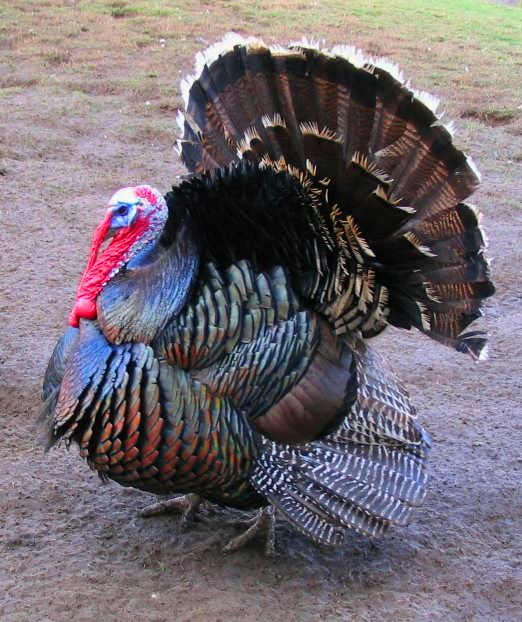You’ve got the bird home, dressed it in its best Thanksgiving suit, and placed it in the warmth of the oven or the stove, the heat causing the flesh to melt softly inside and the juices to spill out and settle over its body. You will bring it out for the family dinner – an event so positive, so traditional. The turkey is only one of the many rituals.
You have been to the butcher’s often or to the food store. You checked the meat for health and bite. You are a carnivore and relish the tartness of plump flesh in your mouth, the chewiness of the white insides. Turkeys – or other birds and animals – do not have a religion. There are, of course, ways in which some faiths choose to kill. That is how everyone did at one time. But the times, they are a-changing, and what’s on your plate could decide how devout you are.
That is what American Thinker’s Pamela Geller asks rather ominously:
“Did you know that the turkey you're going to enjoy on Thanksgiving Day this Thursday is probably halal? If it's a Butterball turkey, then it certainly is -- whether you like it or not.”
There is challenge in this, as though you are a poor little thing forced to put up with it. She believes “that much of the meat in Europe and the United States is being processed as halal without the knowledge of the non-Muslim consumers who buy it”.
Under the pretext of the awful slaughter methods – she has nothing to say about fox-hunting and open barbeques that are pretty common in the west, or even the choice of steaks rare – she is driving home the point that this is an Islamic plot. Yes, in the heart of America and the western nations, where turkey is consumed more than in any Muslim country, these Muslims are managing a major coup by not labelling the meat separately as halal and non-halal. Do they own all the meat companies?
She managed to verify just one such manufacturer. Wendy Howze, a Butterball Consumer Response Representative, said: "Our whole turkeys are certified halal.”
Butterball is in trouble, because Ms. Geller is starting a campaign in the US:
“Across this great country, on Thanksgiving tables nationwide, infidel Americans are unwittingly going to be serving halal turkeys to their families this Thursday. Turkeys that are halal certified -- who wants that, especially on a day on which we are giving thanks to G-d for our freedom? I wouldn't knowingly buy a halal turkey -- would you? Halal turkey, slaughtered according to the rules of Islamic law, is just the opposite of what Thanksgiving represents: freedom and inclusiveness, neither of which are allowed for under that same Islamic law.”
I understand her pain, and more so of the turkey. But she is the antithesis of the “freedom and inclusiveness” she is talking about. She is emphasising the differences. American butchers are not all Muslim, and they do not run the industry anyway. This halal stuff gets to be tiring, whether it is those who want it and those who don’t. Especially if the motives are religious.
America is not a religious state, although Abraham Lincoln did use faith to explain Thanksgiving:
"…announced in the Holy Scriptures and proven by all history, that those nations are blessed whose God is the Lord… But we have forgotten God. We have forgotten the gracious hand which preserved us in peace and multiplied and enriched and strengthened us, and we have vainly imagined, by the deceitfulness of our hearts, that all these blessings were produced by some superior wisdom and virtue of our own… It has seemed to me fit and proper that God should be solemnly, reverently and gratefully acknowledged, as with one heart and one voice, by the whole American people…"
If the 16th President of the United States declared it a national holiday, it was for all citizens. This can be seen beyond faith as it was thanking for a good harvest initially. It can be a gesture of deep gratitude for so many things in life.
Geller is exaggerating and making an issue where there is none. If people like her are so concerned, they can just go chase a bird and put it to sleep in the gentlest manner possible. Or, better still, get a soya turkey.
- - -
"Thanksgiving comes to us out of the prehistoric dimness, universal to all ages and all faiths. At whatever straws we must grasp, there is always a time for gratitude and new beginnings."
- J. Robert Moskin



